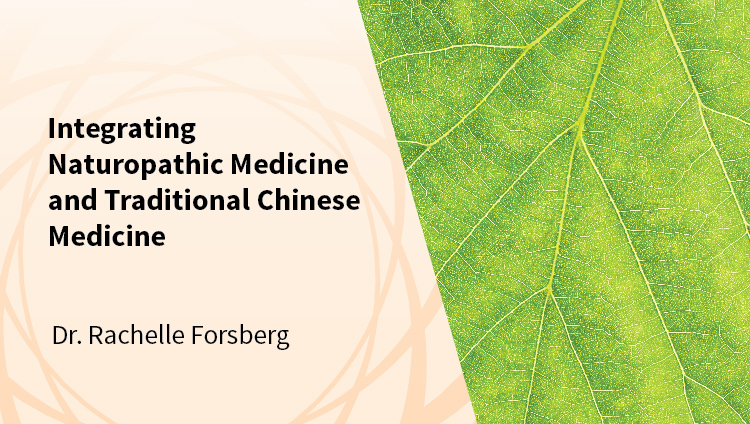By Dr. Rachelle Forsberg
“We have to remember that what we observe is not nature in itself, but nature exposed to our method of questioning.” – Werner Heisenberg
Practicing as a naturopathic doctor and an acupuncturist provides a unique lens through which I can view my patients’ health care concerns. Some people ask me how my background in both traditional Chinese medicine (TCM) and naturopathic medicine influences the way I practice.
One of the advantages of approaching my patients’ health concerns from both a naturopathic and TCM angle is that I can observe patterns in the body from more than one perspective. There is a story from ancient India about a group of blind men who are all touching different parts of an elephant to learn what it is like. From each of their perspectives every man has a dramatically different piece of information about the subject in question. I’m not sure the blind men ever come to a consensus in this story, but I would like to hope that; despite the seemingly contradictory observations, if they had collaborated together they might have been able to come to a fairly accurate understanding of what an elephant is. I often think of this story in my own practice.

In any encounter, when we are discussing a health concern, you could say that at least one (myself or the patient) and hopefully two (the patient and myself) of these blind men are represented. But, by leaning on my backgrounds in both TCM and naturopathic medicine, I often feel we are fortunate enough to have a third perspective in the conversation.
For example, if we are discussing a case of insomnia – where someone is having difficulty with sleep – I might have more questions to ask of the patient if I am thinking about this concern from both a naturopathic and TCM perspective. Through my naturopathic lens, I might primarily ask questions directly related to sleep. How frequently are they waking? Have they had a sleep study? Have they tried any sleep medications? From this angle, my goal is to see my patient return to a healthy pattern of easily falling asleep and staying asleep. I would likely use herbs or nutrients to help promote sleepiness and we might discuss environmental concerns or hormonal changes that are making it difficult for them to sleep. I have done this with many of my patients. Sometimes it is quite successful and other times it does not help, and we are back to the drawing board.
On the other hand, through my lens of Chinese medicine, sleep issues can be considered the symptom of a greater pattern affecting the entire body, associated with various channels: perhaps a yin deficiency in the heart channel or an excess of yang affecting the liver channel. In Chinese medicine, three people could all be suffering from insomnia that, on the surface, appears to be the same – but underneath, the pattern in each person might be entirely different.
If I were to round out my questioning, in addition the sleep-specific, naturopathic questions mentioned above, I might also ask questions about the body in general. How is mental focus and mood during the day? How is digestion? Do they have headaches? I might also ask a few different questions about their sleep that are related to particular TCM patterns: Are they dreaming vividly? Do they notice a pattern around the time of their waking? Are they having palpitations, hot flashes or night sweats? All of this information can implicate particular TCM channels responsible for the interrupted sleep.
By using these two approaches to the problem at hand, I now have a fuller picture of my patient’s health. I also have more understanding of their problems with sleep – perhaps the main issue is environmental, and naturopathic sleep hygiene intervention will help. But perhaps it is also an issue with a TCM pattern such as heat affecting the heart channel – which might improve with a few changes in the diet. I find that if I address the TCM pattern, along with naturopathic recommendations, my patient will likely have greater success in improving their health more effectively and quickly.
Above all, the best, and most rewarding part of practicing a blend of TCM and naturopathic medicine is the holistic improvement I observe in my patients. I often hear from my patients that their primary concern has improved, but additionally they have noticed other improvements in their health: their digestion is better, energy levels have improved, mood has balanced out…etc. Often times these are symptoms they had even before the primary health issue started. We have learned more about their body. We now see connections between certain symptoms we once saw as unrelated. By supporting the system from various angles, we notice improved balance throughout the entire body.
Call us at 206-535-7527 to schedule an appointment!

